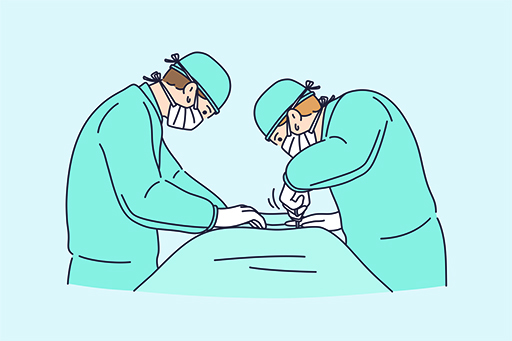3 Types of menopause
Some people can experience a naturally occurring menopause much younger than the expected age. ‘Early menopause’ is defined as a menopause occurring between the ages of 40 and 45 (Hillard et al., 2017), but menopause can arrive even earlier, as early as the teens or twenties. Where menopause symptoms occur under the age of 40, this is termed as premature ovarian insufficiency (POI) (Hillard et al., 2017). This can be extremely distressing for those who are still in the reproductive part of their lifecycle. There is a lot of really useful information and support available on the Daisy Network website [Tip: hold Ctrl and click a link to open it in a new tab. (Hide tip)] .
The menopause can also occur due to medical interventions as shown in Box 1.
Box 1 Surgical and medical menopause – What’s the difference?
Surgical menopause occurs when someone has to undergo a hysterectomy (removal of the uterus). Sometimes, this procedure is accompanied by removal of one or both ovaries (oophorectomy). If one or both ovaries are left in place during the surgery, it is relatively common for people to experience menopause within 5 years of a hysterectomy.
Medical menopause occurs as a result of the effect of drug interventions, such as treatment for cancer, and again, this would result in a sudden onset of the menopause.
(Rayner and Fitzgerald, 2016)
When there has been either a surgical or a medical menopause, particularly where this has occurred before the usual age when menopause would be expected, the time frame can be radically different. It is the medical intervention – rather than a natural process – that leads to a change in hormone levels. This change tends to be a very sudden drop-off rather than a gradual decline, and some people can then find themselves plunging into a whole host of distressing menopause symptoms, rather than them gradually building up. To reduce the impact of these sudden changes and to afford protection to longer term health, HRT is usually prescribed following the medical intervention that resulted in menopause (Liverpool Women’s NHS Foundation Trust, 2020).

